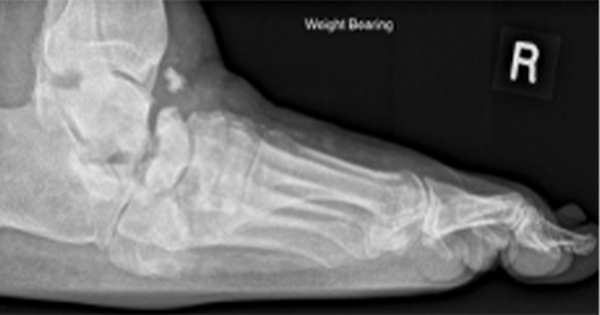The global increase in the prevalence of diabetes is recognised as one of the leading non-communicable diseases of increased risk by the World Health Organization (WHO, 2016). Peripheral arterial disease (PAD) is commonly associated with diabetes and affects approximately one in five people over the age of 60 in the UK, with population studies acknowledging that the incidence increases with advancing age. It carries the risk of lower-limb loss and the increased risk of death from heart attacks and strokes (Vascular Society, 2022). PAD is more common in smokers, people with diabetes and those with coronary artery disease (cardiovascular disease). It is recognised as a major cardiovascular disease affecting approximately 236 million people worldwide (Song et al, 2019) and is more common in low-to-middle-income countries (LMICs) than in high-income countries (HICs) (Song, 2019).
Peripheral arterial disease and diabetes
The diagnosis of diabetes has been widely recognised as a significant risk factor in the development of arteriosclerotic disease (Freisinger et al, 2017), and is estimated to increase the risk of PAD (Fowkes et al, 2013). The relative risk for PAD is shown to further increase with the increased duration of diabetes (Al-Delaimy et al, 2004).
The National Diabetes Audit report on complications and mortality suggested that people with diabetes (with or without PAD) account for between 40–70% of all hospital admissions for amputations and over 40% of all admissions for major amputations (NHS Digital, 2019a; 2019b). It is therefore recognised that individuals with both PAD and diabetes comprise a major subcategory with an especially high risk of poor clinical outcomes (Marso and Hiatt, 2006)
Public Health England (2019) acknowledged that there were 7,545 major and minor amputations in people with diabetes in England between 2015 and 2018. Additionally, 84% of major lower-extremity amputations in people with diabetes are preceded by a foot ulcer (Pecoraro et al, 1990). It is also a worrying statistic that one in three people with diabetes will experience a foot ulcer during their lifetime (Edmonds et al, 2020) which are frequently complex and chronic in nature, and with major long-term impacts on morbidity, mortality and quality of life for the individual (Vainieri et al, 2022). They can often be life changing and limb threatening (Armstrong et al, 2017), especially when associated with peripheral arterial disease.
Many patients with diabetes and/or PAD present with intermittent claudication (pain in calf on walking due to the reduced blood supply to the limb) the symptoms of which remain stable, but approximately 20% will develop increasingly severe symptoms with the development of critical limb ischaemia. Overall, approximately 1-2% of people with intermittent claudication will eventually require an amputation (NICE, 2014).
There is therefore a need to be able to disseminate knowledge on the recognition and management of PAD to a multi-disciplinary audience. This can be done through a variety of means including the development of dedicated post-graduate course not just for education but also upskilling of health care professionals to work more proactively with people living with PAD nationally and globally.
This can reduce unacceptable variations in services for people with PAD with the development of evidence-based, multi-disciplinary pathways to improve patient outcomes (Vascular Society, 2022) for life-limiting pathological PAD conditions that affect approximately 20% of people aged over 60 years in the UK (CG147; NICE, 2014).
The MSc programme
As a result, the innovative sector-first MSc in Advancing Practice in Peripheral Vascular Disease (PVD) from Birmingham City University has been specifically designed to equip students with greater and advanced understanding of the complexities of diagnosing and managing PAD and venous disease and to support and enable effective individualised self-management through bespoke course design.
The course has drawn on global evidence and follows discussions with a range of stakeholders from clinical practice and education to develop this innovative and flexible curriculum. Healthcare professionals can be awarded 60 credits at Level 7 to be attaining the Postgraduate Certificate (PG Cert), 120 credits at Level 7 to be awarded a Postgraduate Diploma (PG Dip) or the full 180 credits at Level 7 to be awarded the MSc in Advancing Practice in Peripheral Vascular Disease. In addition, core modules are designed as standalone options for personal development and professional CPD.
Additionally, for individuals who wish to be recognised as an Advanced Clinical Practitioner they will be able to map their education and clinical experience and capabilities to gain this recognition in the future.
The MSc programme has been developed following collaboration between Birmingham City University and the University Hospitals Birmingham NHS Trust Vascular surgery and Diabetes Teams to be a highly focussed and clinically relevant programme with strong links into current surgical and clinical practice. This has resulted in an MSc which is accessible, inclusive, academically rigorous, and firmly embedded in current clinical and surgical practice which will have a positive impact on national and international PAD services and addresses a public health gap where currently there is no provision on the UK mainland. This course has intentionally been validated with a 100% online delivery, with modules accessible to national and international partners via synchronous and asynchronous delivery to account for challenges in geography and time zone.
It affords a unique student experience enabling the development of individual skills, confidence and competence as they gain a greater understanding of the complexities of assessing and treating peripheral vascular diseases (with or without diabetes) and how best to support and enable effective surgical management. It is suitable for all healthcare professionals working within the vascular or diabetes multi professional team.
The international dimension and application of culturally appropriate surgical interventions also underpins the programme. Through different modules, students will explore leadership, recognise the potential for excellence in practice-led care, extend and enhance their employability and extend their career progression. They will develop a wide range of academic, clinical and surgical skills, learn about new and emerging evidence and gain a critical understanding of current PVD management. This programme has been designed collaboratively to blend theoretical approaches with the challenges of service development and cutting edge care surgical approaches.
It will enable practitioners working in various aspects of vascular medicine to develop their knowledge and skills by developing analytical skills through interactive online learning opportunities, and to critically examine practices within the context of the legislative and professional frameworks of their own country.
What students will study
Students will develop a range of skills, learn new and emerging evidence, advance their knowledge and practice, develop their network, explore leadership and gain a critical understanding of the management of PVD. The aim is that they will acquire knowledge and skills to develop and improve clinical practice for people at risk of or living with PVD across the age span by taking an evidence-based holistic approach to the provision and delivery of individualised PVD care. In addition, there is little national continuing professional development (CPD) for enhanced or extended scope practitioners (nursing or allied health professionals) working within vascular services. This programme enables students to build their own bespoke course of study that fully supports their own clinical and personal development. Offering the students the opportunity to develop their knowledge and skills in an individualised manner allows them to structure their learning to suit their developmental, operational, and educational requirements.
This MSc programme will therefore provide valuable and bespoke CPD, supporting the changing face of healthcare in the UK and fills a skills gap which currently exists for healthcare professionals and meets the advancing needs of multi-professional colleagues.
Students will study core modules in: (Figure 1)
- Assessment & management of peripheral vascular disease (20 credits)
- Strategies in limb salvage (20 credits)
- Leadership in Diabetes & Peripheral Vascular Disease (10 credits)
- Research: Methods of Enquiry (20 credits)
- Dissertation (40/60 credits)
*40 credits if the student has been awarded Non Medical Prescribing annotation by previous study
With the additional credits required for the MSc qualification being taken from existing MSc programmes within Birmingham City University; including the Advancing Diabetes Care and/or Wound Healing and Tissue Repair programmes and could include optional modules such as:
- Wounds Affecting the Lower Leg
- Debridement and Advanced Wound Care
- Foot Care Complexities and Treatment in Diabetes and PVD (10 credits)
- Care and Prevention of Diabetes Related Complication
- Safeguarding Contemporary Issues
- Psychology and Psycho-social Aspects of Peripheral Vascular Disease (10 credits)
- Pressure Ulcers: Prevention and Treatment
- Prevention, Recognition and Management of Sepsis
- Quality Improvement in Wound Healing and Tissue Repair
- Managing Behaviour of Self, Teams and Organisations (online)
*all modules are 20 credits at Level 7 unless otherwise stated.
Students will be encouraged, via the online platform, to develop a professional support network and collegiate community of practice (Maor et al, 2015), which will further facilitate their development, enhance patient care, and expand student capability. Utilising external expertise, via visiting lecturers and interactive webinars or pre-recorded specialist presentations, will enrich student learning, with the bonus of developing collaborative networks and professional support structures. The learning platform also enables the revisiting of taught material so that students can replay and revise content or watch back at a convenient time (irrespective of geography or time-zone) thereby increasing the inclusivity and accessibility of the programme.
Assessments will enable the students to utilise a variety of presentation mediums (and will not solely rely on written assignments) to encourage critical thinking and analysis while enabling students to explore different methods of submission (e.g., narrated presentation, recorded conversation, or quality improvement project). This increases the relevance and application of learning to their current clinical scope of practice and enables the development of transformational skills.
As a result, the MSc in Advancing Practice in Peripheral Vascular Disease has been commended for good practice for the range and inclusivity of its assessments and its mutually beneficial relationships with healthcare trusts and the West Midlands Vascular Research and Innovation Consortium (VARICS). The course has additionally been commended for addressing a public health need, as well as addressing a gap in healthcare training and professional development.




